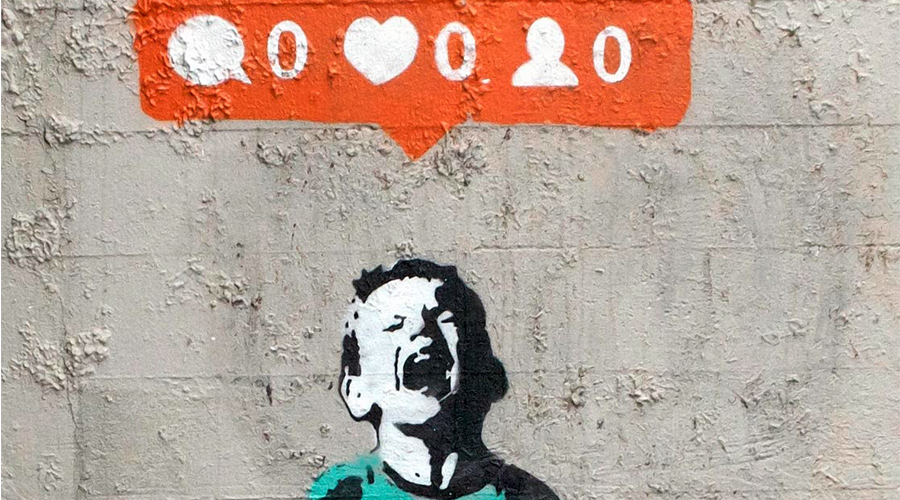It was a dark day for social media influencers and a step forward for mental health when, earlier this year, Instagram revealed it would be making a very radical change to its beloved photo-sharing app: it would be trialling a new feature that would hide the ‘like’ counts on posts.
The premise would remain the same: users post photographs of their beach handstands or inspirational quotes and the images show up on a feed, ready to be scrolled through idly by fellow users. The small numerical total of likes below each image, however, would be no longer visible by followers, only available to be viewed by the account owner upon clicking through a prompt in the app. The purpose, according to Instagram, would be to encourage users to actually focus on the content that is being uploaded, as opposed to the number of likes being collected. In April of this year, the trial took effect in Canada, the country where Instagram’s engagement is the highest. Then, seemingly a testament to its encouraging results, the test was expanded to six more countries in July — one of them being New Zealand.
It may seem like an abrupt, radical update, but with concerns over social media and mental health mounting incessantly, it really is one we should have expected. The fact that social media impacts our minds isn’t exactly new and groundbreaking information. It has been widely understood for a while now that the photo-sharing app — when compared with other social media platforms, like Facebook or Twitter — is incredibly taxing on our brains, especially in regards to the way we compare ourselves to others and value our own self-worth.
There’s also the hope that Instagram will revert back to what it was intentionally created for, which is a creative platform to connect and inspire. Users, rather than feeling obliged to post more ‘like-friendly’ images, flattering swimsuit ‘candids’ or heavily curated selfies, will instead post more genuinely and openly. Removing the pressure of how many likes a post will receive will allow the user to focus on their own interests and hobbies. Our Instagram feeds would thus become more ‘us’, littered with things that we actually like as opposed to images that have been specially curated to appeal to other people’s tastes for the sake of brand maintenance and social approval.
And yet, in what could possibly be described as the most 21st-century problem there is, we’re being asked to spare a thought for social media influencers. Some people are carving out highly successful careers from social media, using their accumulated numbers as a selling point to potential big brand clients. That being said, it’s important to remember that collecting likes isn’t influential on its own. Brands need someone who actually influences an industry — whether that be wellness or fashion — and this is usually monitored by the amount of engagement on their photographs: via comments or tags. Removing likes may seem like it will hinder social media influencers, but in actuality, it will only force them to focus more on building their online community. And so the influencers who already have lots of engagement will not be affected, it’s only the smaller names who rely on likes in order to in turn get the engagement… the ones who are only just beginning to cut their teeth in this gruelling industry. The change will mean that influencers aren’t ruined, only that their content will have to become of higher quality as they will no longer will they be able to lean on their like average.
All this being said, Instagram can’t be blamed for our self-esteem issues. Has anybody taken a second to think that the problem is far bigger than a mere app? Instagram, after all, was hardly the first online construct to tap into the human need for validation. Who could forget the Bebo ‘luv’ of yore? So rare, so coveted was the little red, animated heart that it would be gifted to our friends with the same enthusiasm found when one would gift an expensive present. More luvs, more validation. Or perhaps you were more of a myspace user, where “PC4PC” we offered — a picture comment in return of one back. More comments, more validation. The arrival of Facebook saw us all posting lengthy statuses in a desperate stab to gain likes from friends, with many people deleting statuses that didn’t get quite enough thumbs up as they had hoped. Twitter turned favourites and retweets into currency, where, for a tidy sum of either, the user can be propelled into social media stardom.
It’s evident that the update is a step in the right direction, but if we really want to combat the dire effects of social media, a far more radical move is needed. The best thing to do if you’re really feeling affected by the demons of the online world? Honestly, just log off.







